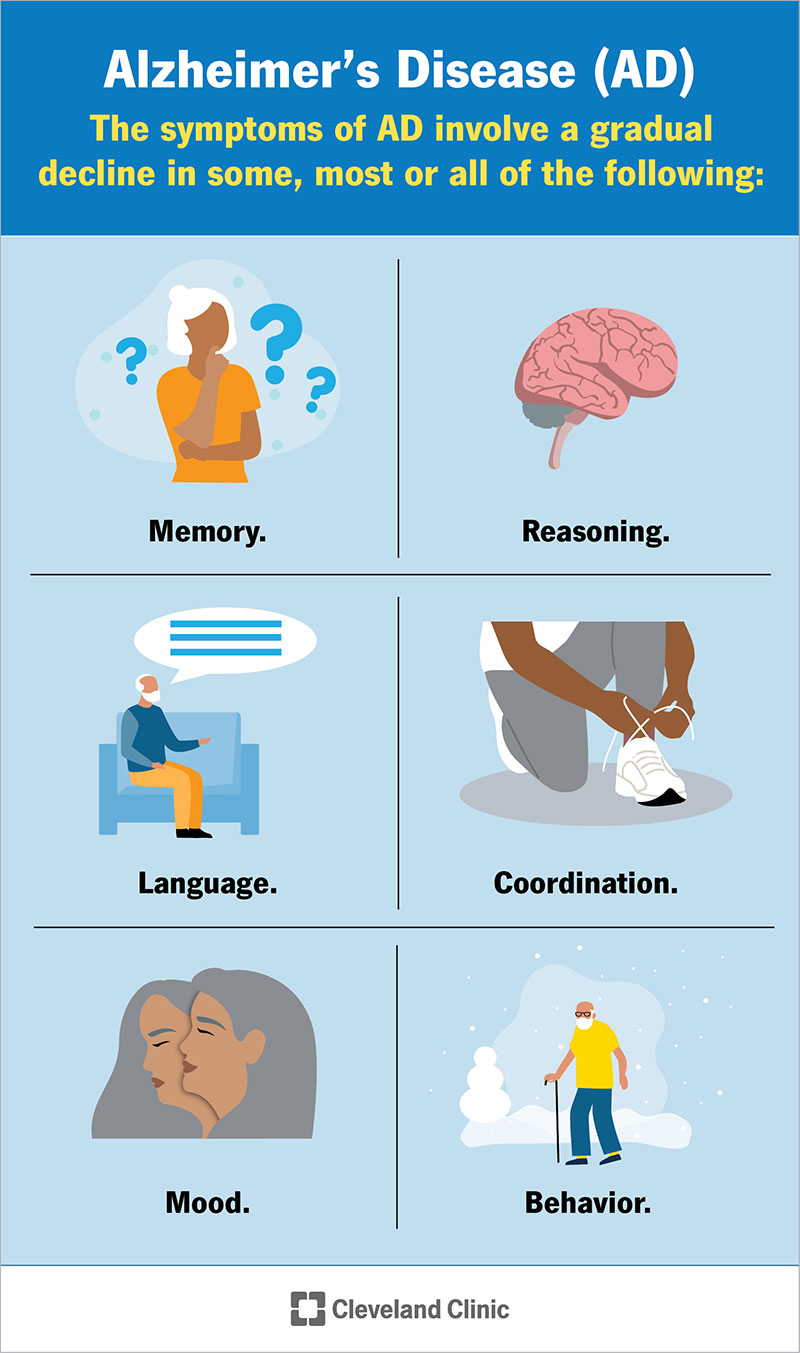Progression
Stages of Alzheimer's Disease
Alzheimer's typically progresses slowly in three general stages: early, middle, and late.

Early Stage (Mild)
In the early stage of Alzheimer's, a person may function independently. They may still drive, work, and be part of social activities. Despite this, they may feel as if they are having memory lapses, such as forgetting familiar words or the location of everyday objects.
Common difficulties include:
- Coming up with the right word or name
- Remembering names when introduced to new people
- Having difficulty performing tasks in social or work settings
- Forgetting material that was just read
- Losing or misplacing valuable objects
- Increasing trouble with planning or organizing
Friends, family, or neighbors may begin to notice difficulties. During a detailed medical interview, doctors may be able to detect problems in memory or concentration.
